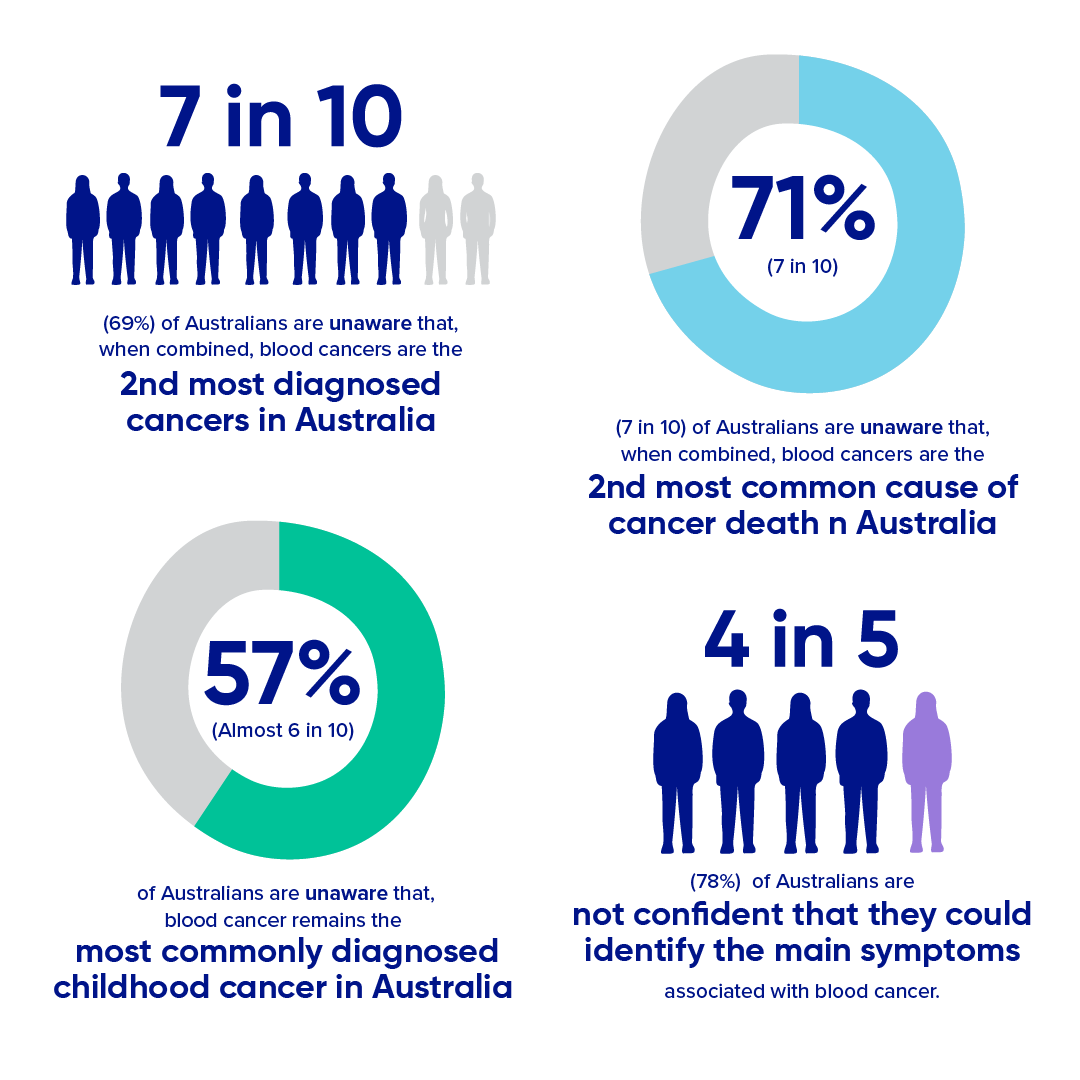[This] is Blood Cancer’ research findings
A nationally representative survey of 1,023 Australians aged 18 years and older, by global researcher YouGov, was commissioned by the Leukaemia Foundation. This study was conducted online 16–18 August 2021. Following the completion of interviewing, the data was weighted by age, gender and region to reflect the latest ABS population estimates.
Key Findings:
- The most common types of cancer that Australians are aware of are breast cancer (93%), lung cancer (91%), prostate cancer (88%), bowel cancer (87%), brain cancer (86%) and melanoma (83%). 76% of Australians said they were aware of blood cancer.
- Almost seven in 10 (69%) Australians are not aware that when combined, blood cancers are the second most diagnosed cancers in Australia, seeing 50 Australians diagnosed every day.
- Seven in 10 (71%) Australians are also not aware that when combined, blood cancers are the second most common cause of cancer deaths in Australia, claiming more lives than breast cancer and melanoma combined. 15 Australians lose their life to the disease each day.
- Almost six in 10 (57%) of Australians are aware that blood cancer remains the most commonly diagnosed childhood cancer in Australia (amongst children aged 0-14), accounting for approximately 45% of all diagnoses.
- Four in five Australians (78%) aren’t confident they can identify the symptoms of blood cancer.
- Just under one third of Australians (30%) admitted that even if they were experiencing any of the main symptoms associated with blood cancer, they weren’t confident or sure that they would consult their GP about them.
- Just half (49%) of Australians agree that a patient diagnosed with blood cancer has a good chance of survival, while one in four (26%) disagree and one in four (25%) are unsure.
For a copy of the full research findings, please contact media@leukaemia.org.au
Learn more about blood cancer symptoms and what to ask your doctor on our Signs and Symptoms page.
Subscribe to Leukaemia Foundation news and updates
Subscribe hereLast updated on January 31st, 2022
Developed by the Leukaemia Foundation in consultation with people living with a blood cancer, Leukaemia Foundation support staff, haematology nursing staff and/or Australian clinical haematologists. This content is provided for information purposes only and we urge you to always seek advice from a registered health care professional for diagnosis, treatment and answers to your medical questions, including the suitability of a particular therapy, service, product or treatment in your circumstances. The Leukaemia Foundation shall not bear any liability for any person relying on the materials contained on this website.